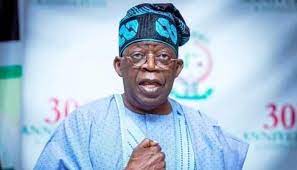Despite sustained efforts by the Nigerian government through policy measures to transform the country to haven of investments, the latest report from RMB on the 2024 edition of its ‘Where to Invest in Africa’ report, has shown that Nigeria was not among the top investment destinations in the continent.
The report, which is a comprehensive analysis of the top investment destinations on the continent and was developed in collaboration with the Gordon Institute of Business Science (GIBS), leverages a robust methodology that has been updated to reflect new data sources, taking into account a variety of factors that have been proven to determine a country’s progress and therefore its investment potential.
Specifically, the results of the report showed that among the 31 countries covered by the survey, the two small island economies of Seychelles and Mauritius ranked first and second as the most attractive investment destinations on the continent, while the significantly larger economies of Egypt, South Africa, and Morocco ranked third, fourth and fifth places respectively.
According to the RMB researchers, Seychelles led the rankings based on high levels of personal freedom, human development, and a stable economic environment even as the country offered a unique and attractive investment climate.
Also, the report indicated that despite scoring lower on economic size and potential, Mauritius ranked high in innovation, economic freedom, and high GDP per capita, and continued to be a top destination for investors seeking stability and growth opportunities in a well-regulated environment.
Similarly, Egypt, which ranked third, represented Africa’s largest economy by GDP (2023), offering a substantial market with diverse opportunities in sectors like technology, manufacturing, and services, while the country’s strategic location and economic complexity further enhanced its attractiveness.
The report further reflected that despite facing significant challenges, South Africa, which ranked fourth in the ratings, remained a crucial hub for investment in Africa as its robust financial sector, diverse economy, and potential for infrastructure development made the country a key player.
Finally, Morocco’s strong performance in connectedness, innovation, and economic stability positioned it as a top investment destination, ranking fifth, as the country’s strategic proximity to European markets added to its appeal.
Commenting on the report’s findings, Chief Economist at RMB, Isaah Mhlanga, said: “Africa is not a country, but a vast, diverse and complex continent with different cultures, economies and investment potential. Our report therefore is not a definitive guide, but rather it is designed to provide insight to uncover the underlying drivers of a country’s performance that inform its ranking. This offers invaluable insights for investors, policymakers, and business leaders looking to navigate Africa’s dynamic economic landscape.”
The researchers maintained that investment decisions needed to be viewed through both an economic performance lens and an operating environment lens, adding that as a result, the methodology used for the 2024 edition of the Where to Invest in Africa report builds and expands on previous editions, taking into account new data sets as well as changing geopolitical and macroeconomic climates.
The scorecard for the 2024 issue highlights 31 countries that collectively represent 92% of the continent’s economic activity (measured by GDP), and more than one billion people (three quarters of the continent’s population). It draws on publicly available data sets from global institutions, including the World Bank, the IMF, the African Development Bank, the United Nations, and the International Labour Organisation.
The model is constructed from 20 metrics across four measurement pillars: economic performance and potential; market accessibility and innovation; economic stability and investment climate; and social and human development. Each metric is weighted, which translates into a weight for each pillar, and based on these metrics a standardised scorecard is produced, with rankings that enable effective comparison across Africa’s complex and heterogeneous environment.
Explaining investment archetypes of the report, the RMB experts further clarified: “Africa is an incredibly diverse continent, and no two markets are the same, which means there is no such thing as a universal success story. However, when we zoom out and view nations through the lenses of size and the relevant investability score, it becomes apparent that they fall into distinct groupings with shared traits. The 2024 edition of Where to Invest in Africa suggests five potential investment archetypes based on shared characteristics revealed through the four measurement pillars.
“‘Highflyers’ represent the large, well-established economies that offer stability and a range of investment opportunities such as Nigeria, South Africa, Egypt and Ethiopia. Those ‘Cleared for Take-off’ are countries with high economic growth and innovation potential thanks to factors like a young population and abundant resources, including Senegal and Côte d’Ivoire.
“‘People Potential’ are markets with a young and growing demographic, creating a sizeable consumer base and a future workforce, such as Kenya, DRC and Uganda. ‘Global Connectors’ are more advanced economies with a strong international presence, such as Morocco, Mauritius, Tunisia and Seychelles.
“‘Low-Base Boomers’ are smaller markets with high potential for explosive growth but a corresponding higher degree of risk, including Rwanda, Mozambique, and Benin”, the report added.






